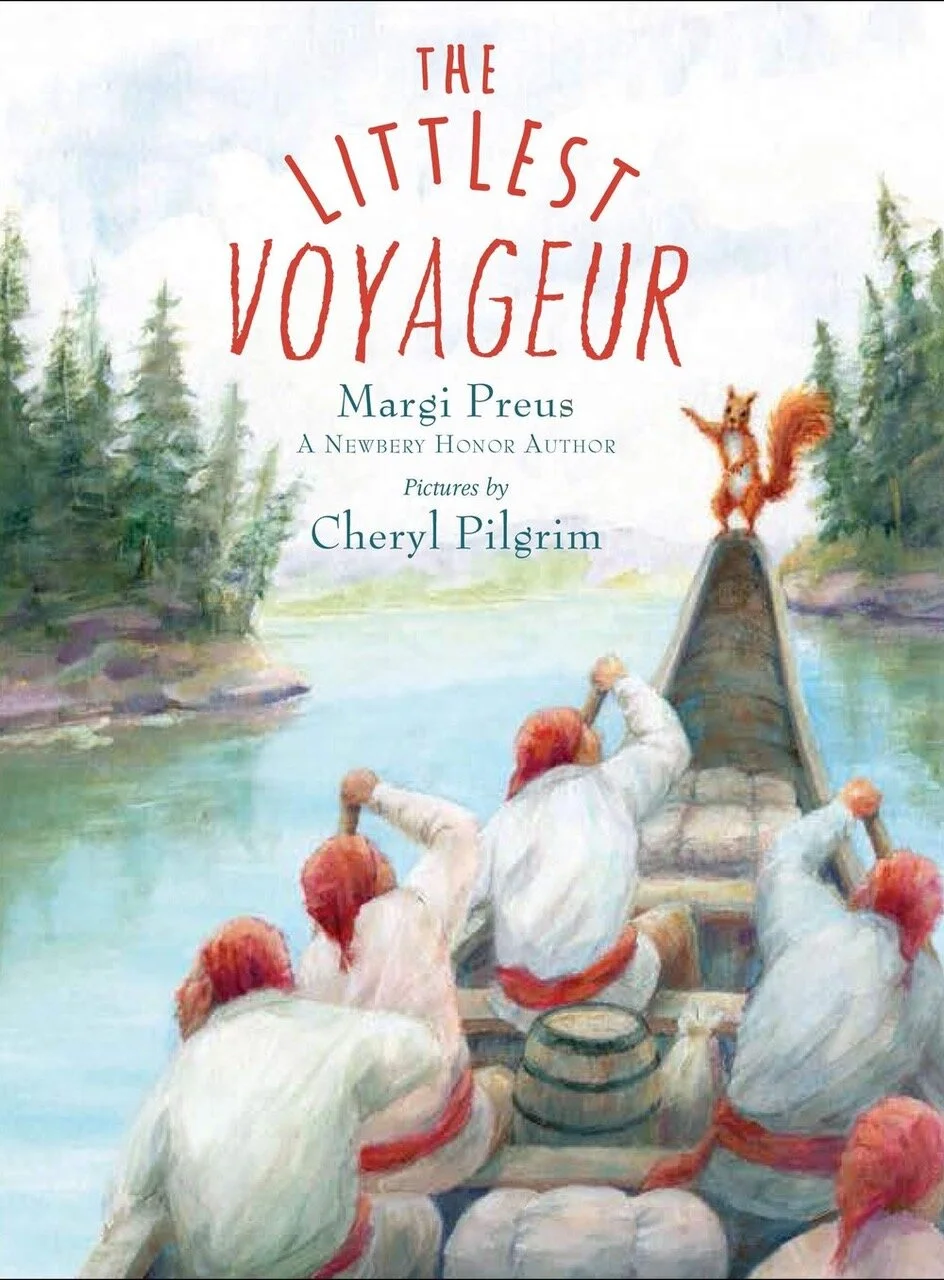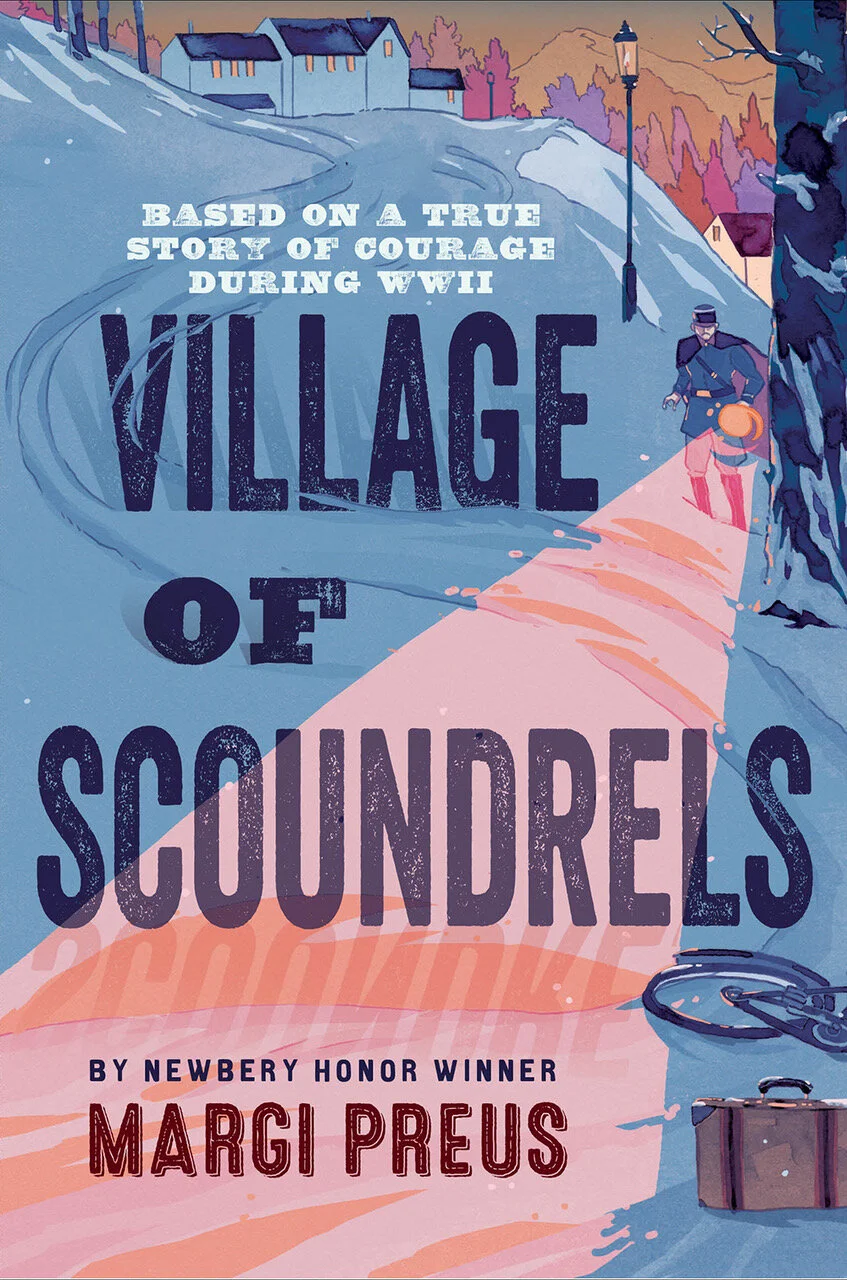by Charlotte Gutzmer
When it comes to worlds of mystery and adventure, no one knows how to navigate to the heart of an enchanting story quite like Margi Preus. Whether it’s a breathtaking tale of history and heroism or a bewitching story of myths and magic, she knows exactly what questions will drive her to the deepest and most enthralling moments, settings, and characters.
Margi Preus is a New York Times bestselling author of the Newbery Honor Book Heart of a Samurai and other notable novels and picture books for young readers. New in 2020 are Village of Scoundrels, The Littlest Voyageur, and The Silver Box, part of the Enchantment Lake mystery series. Her books have won multiple awards, been honored as ALA/ALSC Notables, selected as an NPR Backseat Book Club pick, chosen for community reads, and translated into many languages. When not writing, Margi enjoys traveling, speaking, and visiting schools all over the world. On June 8th at 7pm, join her for her CVWG craft talk: “Can I Pull This Off? And Other Questions That Drive Our Writing And Inspire Our Stories”.
I recently had the pleasure of chatting with Margi Preus about her extraordinary stories and her upcoming craft talk. Read on to learn all about how asking questions as you write can hone your craft, the rewards and challenges of writing for young readers, and more!
Charlotte Gutzmer: What are some of the rewards and challenges of being a writer of literature for young readers?
Margi Preus: If you think about what books have meant the most to you, or that have influenced you more than others, it’s likely you’ll single out a book or books from your young reading life. There is no more passionate reader than a young reader. This knowledge makes writing for young readers both rewarding and harrowing. The same thing that makes writing for young readers so rewarding also offers up its greatest challenge: the responsibility that comes with writing for those young hearts and minds.
CG: On your website, you note that your magically fascinating books are rooted in your “family, their stories, and their love of the outdoors.” How does writing help you explore your heritage and the world around you?
MP: Writing makes us see the world more sharply; it allows us to examine human relationships more deeply; and it gives us time to contemplate big questions—the questions raised in and by our own small family spheres as well as the greater world around us.
CG: Your website also refers to a love for travel and for speaking! How have your personal experiences in these passions influenced your craft?
MP: Whether taking shelter behind a boulder during a snowstorm in Norway or getting lost in a forest in France where Jewish children hid during WWII, things I experience when I travel seem to work their way into my stories. And the people I have been privileged to get to know in my travels and through interviews have not only enriched and shaped my writing, but my whole life.
CG: In the description of your upcoming craft talk, you stress the importance of questions and how they are integral to enlightening both writers and readers. How can questions help writers home in on the heart of their craft?
“I find that I am most engaged in my writing not when I am trying to make a statement, but when I am grappling with questions, questions I don’t know the answers to, sometimes unanswerable questions. ”
MP: I find that I am most engaged in my writing not when I am trying to make a statement, but when I am grappling with questions, questions I don’t know the answers to, sometimes unanswerable questions.
Being aware of the questions that propel you to write in general and why you want to write a particular story help to inform your writing and enrich your writing experience. The questions that you raise within your story for readers to ponder add depth and meaning to that story.
I don’t believe we need to always answer the questions we raise, or to wrap everything up in a tidy bow. Raising questions for the reader to ponder and wonder over is a perfectly legitimate purpose of telling stories and may enlighten in deeper ways than answers and solutions.
CG: Of the many questions one might ask oneself when beginning a project, what question is most important?
MP: That is always going to depend on the writer and the project. Still, at some point early in the process the question, “Can I pull this off?” is probably going to occur to the writer. For me, the answer is pretty much always ‘probably not’ which could mean I’ve bitten off more than I can chew, but it might mean there is something wonderful in store—something that will stretch my abilities and expand my imagination, something that will challenge writer and reader.
I think we all ask ourselves questions at the start of a story, even though we’re not always aware of what they are. I hope in my session we can delve into all kinds of things we wonder about, ask ourselves, and consider what questions we hope to pose to the reader.
CG: On your website, you give writers the valuable advice to read “like a writer”. How does one read like a writer, and what benefits does this practice bring?
MP: In a second read-through (the first read-through should always be just for pleasure) look for moments where the story has made you cry, laugh, shiver with suspense, or has kept you turning pages well past your bedtime. What kind of magic trick has the writer performed to make those things happen? Take it apart and study it, as you might learn how to make a coin disappear or pull a rabbit out of a hat. Then practice it.
So what are you waiting for? Register today for Margi Preus’s craft talk to find out which questions are going to ensnare the senses of your readers, to practice exercises that will create intrigue and magic in your own stories, and to find out how you, too, can delve into the enchanting world of storytelling.




